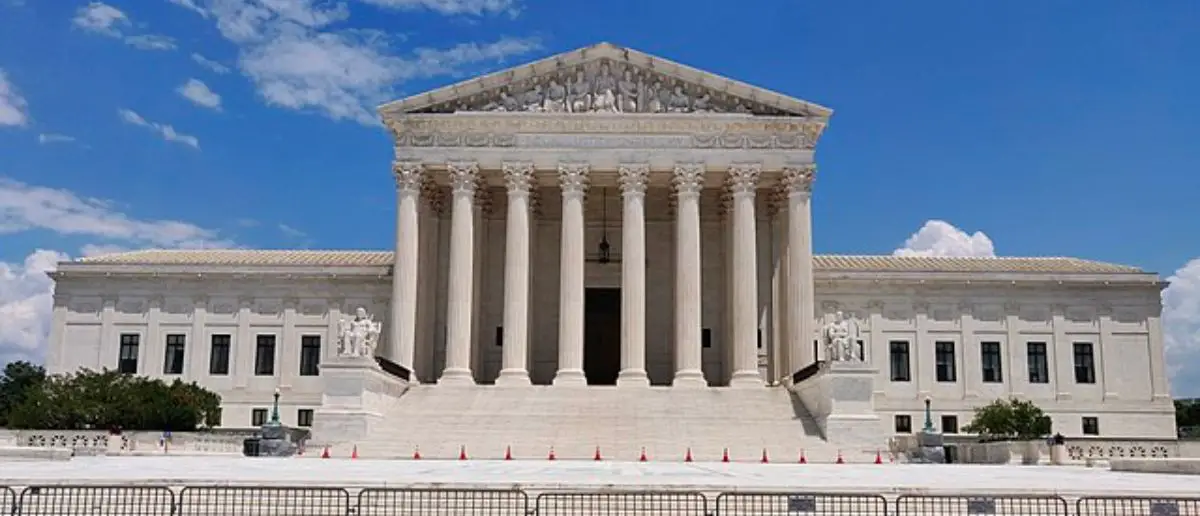
Former President Joe Biden has been disgraced. But he’s still trying to stay relevant.
Now Joe Biden’s called out a U.S. Supreme Court Justice in this very strange speech.
President Joe Biden, speaking at the National Bar Association gala in Chicago, praised Supreme Court Justice Ketanji Brown Jackson as one of the most brilliant legal minds he has encountered. Reflecting on his tenure, Biden emphasized his commitment to diversifying the judiciary, noting that his administration appointed an unprecedented number of judges from varied backgrounds.
“I appointed the most demographically diverse slate of judges ever in the history of the United States of America. [At the] top of that list, one of the brightest lawyers I’ve ever met, Ketanji Brown Jackson, the first black woman on the United States Supreme Court,” Biden said.
Justice Jackson was the sole dissenter in a Supreme Court decision permitting President Donald Trump to move forward with plans to reduce the federal workforce. In her dissent, she described the majority’s ruling as “hubristic and senseless.” She also voiced strong concerns in her dissent in Trump v. CASA, arguing that the decision to restrict district courts’ use of nationwide injunctions represented an “existential threat to the rule of law.”
Biden also took the opportunity to highlight his extensive political career during the speech. “And when I got elected as the youngest person, I got elected before I could be sworn in. Everybody, and I beat a really very popular guy. Nixon won my state with 60% of the vote. I won by a rousing 3,200 votes. And they’d say, what’s your secret? What was the secret? There always had to be some secret. And I always told them the same thing, and I mean from the bottom of my heart,” Biden said.
Biden’s assertion that he knows “what’s worth losing an election over” contrasts with his history of adjusting positions to align with political trends. For example, he supported the 1994 crime bill, which fueled mass incarceration, but later acknowledged it as a mistake amid criticism from progressive groups. Likewise, Biden shifted his stance on the Hyde Amendment, which banned federal funding for abortions, during the 2020 campaign to better align with Democratic voter priorities.
Additionally, his 2021 decision to halt oil drilling on federal lands was followed by approval for drilling in Alaska, though in 2024, his administration moved to restrict oil and gas activity on vast Alaskan lands and effectively blocked a road project critical for copper mining.
Ketanji Brown Jackson The Weakest Justice According To Analysis
Justice Ketanji Brown Jackson’s tenure on the Supreme Court has sparked debate among legal experts and observers, with some arguing that her frequent dissents and judicial approach suggest she is a weaker justice compared to her colleagues. Since her appointment in 2022 as the first Black woman on the Supreme Court, Jackson has consistently dissented more often than any other justice, a pattern that critics point to as evidence of her limited influence on the bench.
Data from the 2023-2024 Supreme Court term shows Jackson authored dissents in 12 cases, more than any other justice, according to a review of court records. This trend continued from her first term, where she dissented in high-profile cases, often standing alone or with the court’s liberal minority. Critics argue that her frequent dissents indicate an inability to persuade her colleagues or shape majority opinions, a key measure of a justice’s effectiveness. For instance, in the Trump v. United States case regarding federal workforce reductions, Jackson’s solo dissent called the majority’s decision “hubristic and senseless,” but it failed to sway even the other liberal justices.
Legal scholars like Professor Jonathan Adler of Case Western Reserve University have noted that Jackson’s dissents often rely on emotive language rather than rigorous legal reasoning, which may weaken her impact. In Trump v. CASA, her claim that limiting nationwide injunctions posed an “existential threat to the rule of law” was criticized by some as hyperbolic, potentially undermining her credibility among peers. This perception is echoed by conservative commentators who argue that her dissents prioritize ideological stances over precedent or textual analysis.
Public sentiment, as reflected in online discussions and opinion pieces, also highlights skepticism about Jackson’s judicial strength. A 2023 poll by Rasmussen Reports found that 54% of Americans viewed her as less effective than other justices, with many citing her dissent-heavy record as evidence of misalignment with the court’s conservative majority. This public perception aligns with critiques from legal analysts who argue that effective justices build coalitions, as seen with justices like John Roberts or Brett Kavanaugh, who often bridge ideological divides.
Jackson’s defenders, however, argue that her dissents are a principled stand against a conservative-leaning court, reflecting her commitment to protecting minority rights and challenging judicial overreach. Supporters point to her dissent in Dobbs v. Jackson Women’s Health Organization (2022), where she joined Justices Sotomayor and Kagan in arguing that overturning Roe v. Wade undermined settled law. Yet critics counter that her dissents, while passionate, often lack the precision needed to influence future rulings or shift the court’s direction.
Another point of contention is Jackson’s judicial philosophy, which some experts describe as overly reliant on progressive ideals rather than strict constitutional interpretation. In cases like Students for Fair Admissions v. Harvard (2023), her dissent defending affirmative action was seen by critics as prioritizing policy preferences over legal constraints, further fueling perceptions of weakness in a court that values textualism and originalism.
Comparisons to other justices highlight this critique. For example, Justice Elena Kagan, another liberal, is often praised for her strategic dissents that lay groundwork for future cases, whereas Jackson’s approach is seen as less tactical. A 2024 analysis by the Federalist Society noted that Kagan’s dissents in major cases were cited in lower court rulings 30% more often than Jackson’s, suggesting greater influence.
Appointed during a period of intense political polarization, she faces a court dominated by a 6-3 conservative majority. Some argue her frequent dissents are less a reflection of weakness and more a structural reality of ideological misalignment. Still, critics maintain that her inability to persuade moderate conservatives like Roberts or Amy Coney Barrett underscores a lack of judicial heft.
Public discourse, including editorials in outlets like The Wall Street Journal, has amplified this view, with some calling Jackson’s record a sign of inexperience. Her prior role as a district court judge and her limited time on the D.C. Circuit before joining the Supreme Court are cited as factors limiting her ability to navigate the court’s dynamics effectively.





